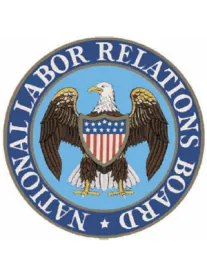The National Labor Relations Board (“Board”) recently issued a decision that serves as a reminder for both union and non-union employers that the Board continues to take an aggressive stance on seemingly innocuous employment policies that the Board believes may chill an employee’s exercise of his or her Section 7 rights under the National Labor Relations Act (the “Act”).
The Employer in Component Bar Products, Inc., 364 NLRB No. 140 (Nov. 8, 2016), maintained a personal conduct and disciplinary action policy that prohibited, among other things: (1) insubordination or other disrespectful conduct; and (2) boisterous or disruptive activity in the workplace. The Administrative Law Judge (“ALJ”), applying the test set out in Lutheran Heritage Village-Livonia, 343 NLRB 646 (2004), found that these work rules were facially unlawful because employees would reasonably construe these rules to prohibit the exercise of their Section 7 rights under the Act.
In regard to the rule that prohibited “insubordination or other disrespectful conduct,” the ALJ, relying on prior Board precedent, found that this rule would impermissibly prohibit employee complaints about supervisors and working conditions that “supervisors may perceive as an affront to their authority.” Rules that solely prohibit insubordination, however, have been upheld by the Board.
In regard to the rule that prohibited “boisterous or disruptive activity in the workplace,” the ALJ was concerned that this rule would prohibit an employee’s right to engage in a work stoppage, as well as other activity permitted under Section 7 of the Act. Further, the ALJ found that unlike similar rules prohibiting disruptive activity that have been upheld in the past, the Employer’s rule here did not include any example or limitations that clarified the scope of the rule.
In affirming the ALJ’s decision, a 2-1 majority of the Board stated that it agreed with the ALJ’s application of the Lutheran Heritage test to the work rules at issue. Thus, it is clear that the Board continues to focus on the “chilling effect” that broadly drafted work rules may have on an employee’s exercise of his or her Section 7 rights. Although it is likely that a Republican-led Board under President Trump will overturn decisions such as this one, this will take time and Regional Directors will continue to enforce Component Bar Products and decisions like it for the foreseeable future. Accordingly, we recommend that employers conduct a close review of their current employment policies to ensure that they cannot be construed as limiting an employee’s Section 7 rights.




 />i
/>i
